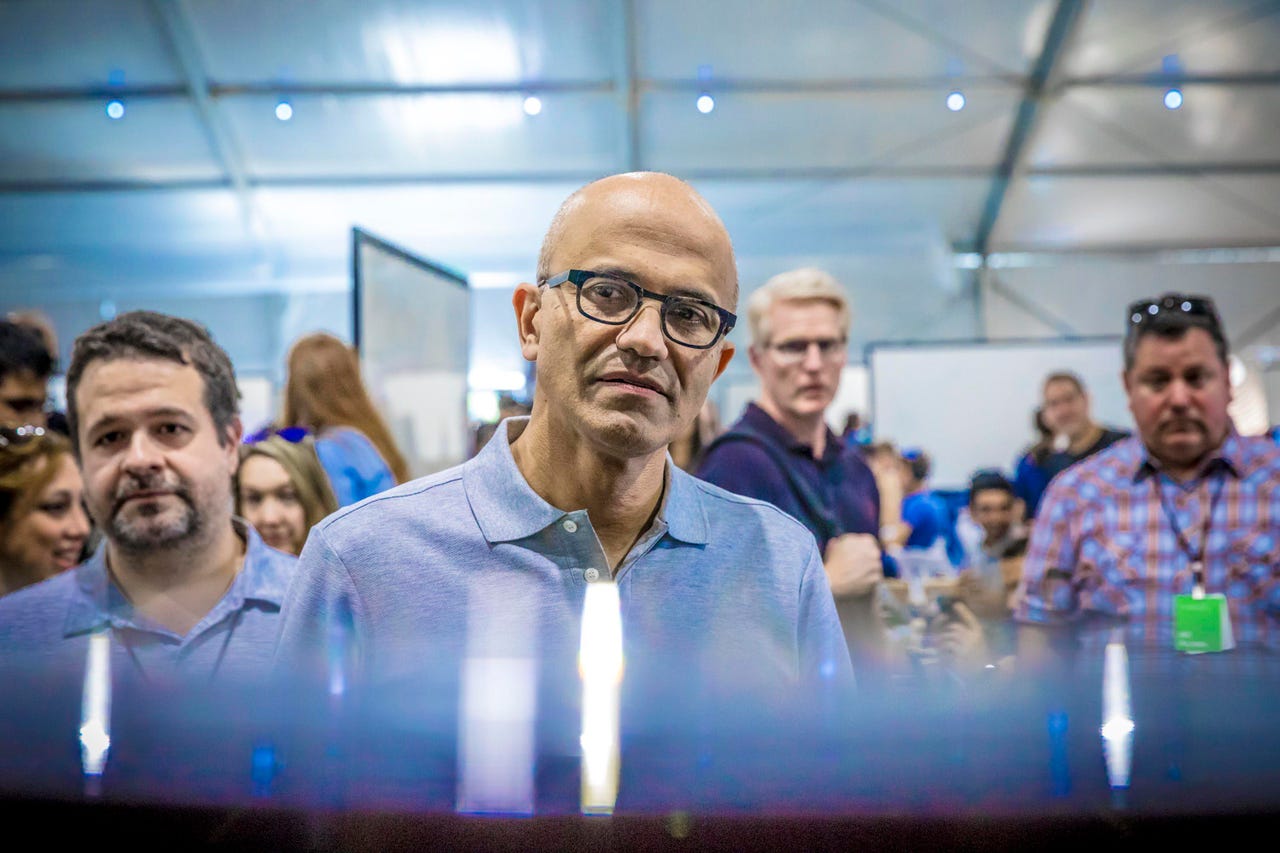Microsoft's CEO is tired of working from home and he's not alone


He's tired of all those Microsoft Teams meetings.
Satya Nadella is asleep on the job.
No, I wouldn't dream of criticizing Microsoft's CEO. I did, however, see his words, uttered on Tuesday at the Wall Street Journal CEO Council: "Somebody once described this. When people say you're working from home, it feels sometimes like you're sleeping at work."
It does? I've done it for quite a while and find it mostly enlivening.
Is Nadella finding it hard to keep his eyes open? This isn't good for the CEO of a major organization, one that often delights the government.
He explained: "Thirty minutes into your first video meeting in the morning, because of the concentration one needs to have on video, you're fatigued."
Is this because too many meetings are dull? Is it because it's harder to hide that you're texting a friend about last night? Is it because you know you have another nineteen video meetings that day?
In Nadella's case, he believes all those video meetings are merely transactional. The really inspired, creative work happens in casual conversations before and after meetings. Surely, at times, in bars, too.
Instead, here we have employees sometimes in extremely uncomfortable working conditions -- a bedroom, perhaps, or a small living room -- having to perform their tasks without the freedom to let their minds (and bodies) roam.
Microsoft's own research doesn't entirely support Nadella's thesis. The company's investigators found that although employee work hours have been extended, they're still finding ways to meet for casual encounters, rather than strictly work-related purposes.
Moreover, Microsoft's managers are making more effort to maintain contact with their employees and ensure they're not going (too) crazy.
Nadella's frustrations are, however, being echoed elsewhere. Stanford economics professor Nicholas Bloom believes working from home is, for many, a "productivity disaster."
Writing for CNBC, Bloom said he fears "a slump in innovation. In-person collaboration is necessary for creativity, and my research has shown that face-to-face meetings are essential for developing new ideas and keeping staff motivated and focused."
He worries that the true results of working from home in less than ideal circumstances will be reflected in fewer innovative products in the years to come. Starting next year.
Bloom previously performed research at Chinese travel company Ctrip, which allowed employees to work from home, but only if they had a dedicated home office.
His current research is very different: "Most of the people I've been interviewing are working in their bedrooms or shared common rooms, with noise from their partners, family or roommates."
Loneliness, he says, is a debilitating factor. He explains that when, after nine months of working from home, he asked Ctrip employees whether they wanted to return to the office, half said they did. Even though their average commute was 40 minutes.
He concedes that some people -- those who enjoy a higher standard of living -- have seen benefits. One of those benefits, he says, is that "we've become adept at video conferencing." Well, perhaps for the first 30 minutes of the first Teams meeting of the day.
It seems, though, that after the initial shock of so many people being locked down and loaded up on screen meetings, many companies are questioning every one of their working methods.
Nadella insists that, with the Teams product, Microsoft is doing its best to make video meetings more effective and, well, palatable. Though I'm not sure how effective its new Spotlight feature will be. With this, the meeting presenter controls what the participants can and cannot see. Now that could be really tiring for participants.
Moreover, he championed Microsoft's worrying new Virtual Commute feature, which asks participants to consider what they want to accomplish that day. And then asks them to fill out a questionnaire at the end of the day. (A little tiresome, surely.)
He fears, he said, the loss of what he calls social capital during the pandemic. He insists that employees should use data to examine the way they're going through their working days.
The next six to nine months will force many businesses to decide which approach to business is the most balanced and effective for them and their employees. Nadella predicted that, in the next three years, he expected the proportion of employees working in a flexible way would rise from the current 20% to 30% to perhaps 50% to 60%.
When a readily-available vaccine finally arrives, though, will many people be meeting at the office again?
And will they still feel tired after the first meeting of the day?